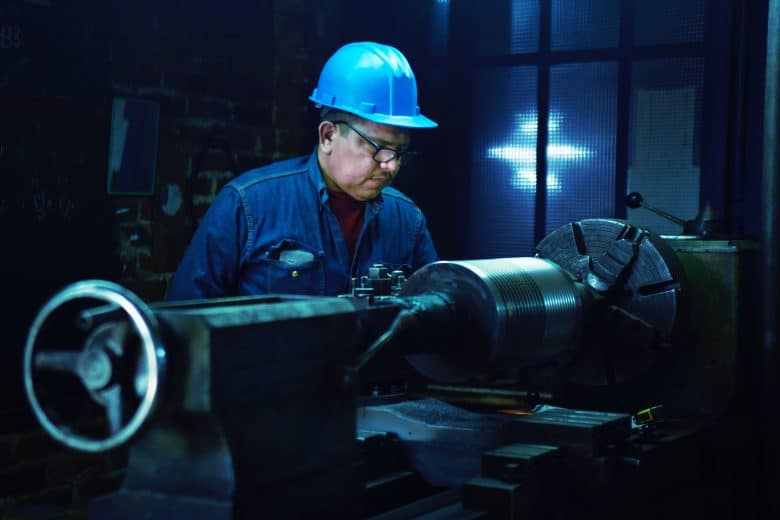Manufacturing relies completely on technology — in fact, manufacturing only exists because of technology. So whenever there are major technological developments, you can bet that the manufacturing industry will be one of the first and greatest beneficiaries of the new tech.
There are so many ways in which technology has completely transformed the way companies develop and build new products, and there are even more exciting ones on the horizon. While factories in the U.S. may not look like Spacely Space Sprockets where George Jetson worked just yet, they could be well on their way. Read on to learn more about how the manufacturing industry is evolving with technology.
Machines are sharing
Smart machines are a development that both families and big businesses alike are salivating over. With the development of the internet of things (IoT), people are able to control everything from their laundry machines to their air ACs right from their smartphones, so just imagine what it’s doing and will do for the manufacturing industry.
One of the many ways the internet of things is impacting the manufacturing industry is that it’s making facilities more secure. Many business owners are stuck over whether to choose DVR vs NVR systems for their security, and the internet of things is what makes the big difference.
While DVRs record analog data and convert it into digital format before sending it to the recorder to be processed, NVR systems only handle digital data which the camera encodes and processes before sending it to the recorder to be viewed. There is even a cloud-based system that allows you to view live footage from anywhere and from any device via password access. It’s the internet of things that allows cloud-based and hybrid cloud/NVR systems to operate like computers and process and share data over the internet.
Machines are learning
If someone told you that people were learning how to work more efficiently with machines, while that’s great news, it probably wouldn’t pique your interest. Now, if someone told you that machines were learning to work more efficiently with people, that would be a different story, wouldn’t it? Well, it’s happening.
Machine learning is part of an evolution in goods production known as industry 4.0. You’re probably wondering, “What is Industry 4.0?” Industry 4.0 is the name given to the fourth industrial revolution, and the revolution is here.
The first industrial revolution, which occurred in the 18th century, was the introduction of steam mechanization. The second one, which took place during the mid-19th century, brought the idea of assembly lines and mass production. The third one, which occurred around 70 years ago was the introduction of computers and artificial intelligence.
As all industrial revolutions have, Industry 4.0 is pushing the envelope and expanding the role of machines in manufacturing. Industry 4.0 has brought with it some game-changing developments, and machine learning is arguably chief among them.
The fact that machines can now understand speech and even identify individuals by their voices and speech patterns is amazing. This is done by using datasets to train machines to identify patterns and refining their learning by identifying mistakes. To manMachine learning is one of the most exciting advancements because of the potential it brings for smart factories now and in the future. Imagine machines with the ability to recognize flaws in production and adjust accordingly based on algorithms. The good news is that you don’t have to imagine it anymore — Industry 4.0 and machine learning are here.
Training is going virtual
When you read that training is going virtual, you probably thought about something like the virtual learning that your kids may be enduring due to COVID-19. However, training isn’t going Zoom session virtual — it’s going Star Wars, hologram transmitted in real-time from a remote location type of virtual!
You’ve likely seen videos of holograms used to transmit 3D performances of late greats at music festivals and awards ceremonies, but there are applications for them in the manufacturing industry as well. Hololens, a technology developed by Microsoft, is currently being used in some factories for training purposes. With hologram technology, trainees can watch trainers perform difficult tasks in 3D as if they were watching a physical demonstration in the same facility as the instructor, making training safer and more effective.













Leave a Reply